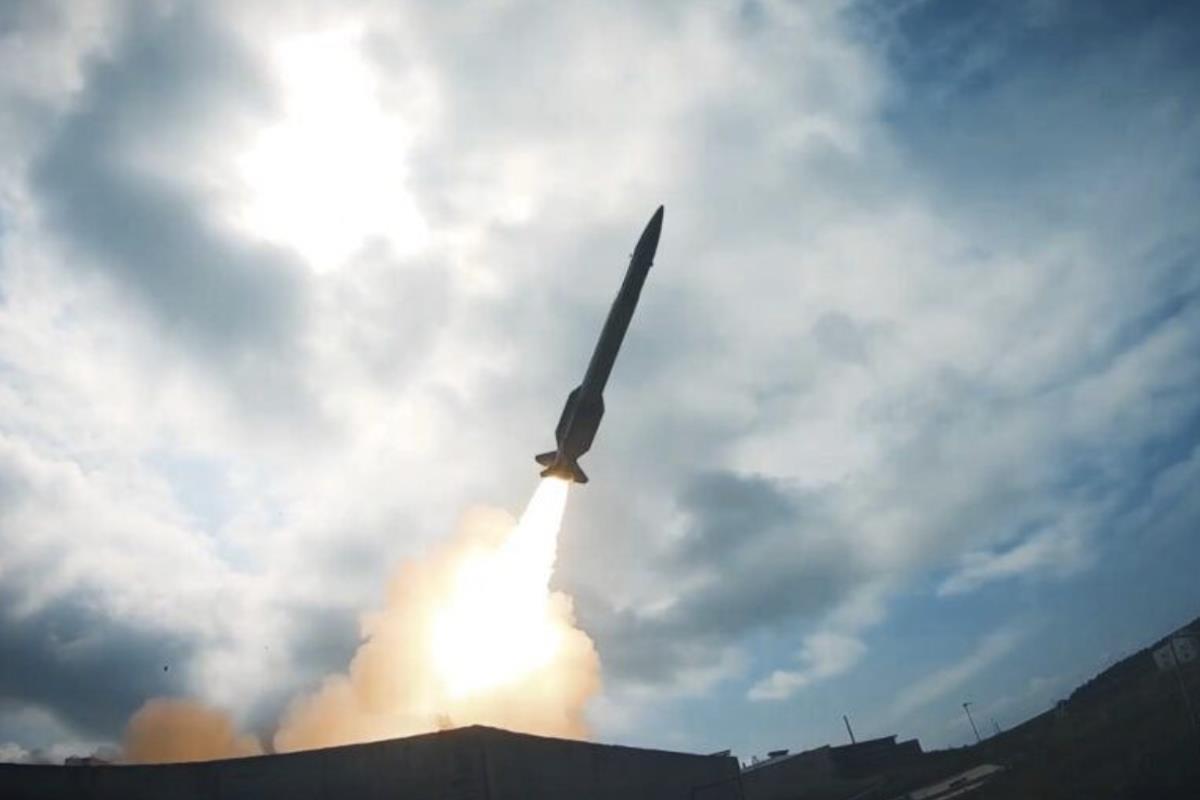
Turkey-Bangladesh Air Defense Deal Jolts South Asia's Skies
On the surface, it is an arms deal. In reality, it's a bold declaration of independence from a nation skillfully carving out its own path between the region's giants. For Bangladesh, this is about buying sovereignty. For Turkey, it's about projecting power. And for India, watching from next door, it's a new and unwelcome strategic headache.
Dhaka's shopping list for high-end Turkish weaponry is not a flight of fancy. It's a direct response to real-world threats that have become impossible to ignore.
For years, the brutal civil war raging in neighboring Myanmar has literally spilled across the border. Stray artillery shells have landed in Bangladeshi territory, and Myanmar's military aircraft, procured mainly from China and Russia, have violated its airspace with alarming frequency.
Each incident cranks up the political pressure on the government in Dhaka to demonstrate that it can, and will, protect its borders. The problem is, it currently lacks the tools to do so effectively. Bangladesh's existing air defenses are a patchwork of older, shorter-range systems, leaving critical areas like the port of Chittagong and the crowded refugee camps near Cox's Bazar dangerously exposed.
This vulnerability is compounded by the ever-present shadow of India. While the relationship is somewhat stable, no military planner in Dhaka can ignore the overwhelming qualitative and quantitative superiority of the Indian armed forces.
Latest stories
Kospi rally shows Trump's trade war worries way overblown

Trade, Covid, rare earths and a real danger of global recession

Ukraine ceasefire possible as Trump and Putin agree to meet soon
Therefore, the drive for military modernization serves a dual purpose: to create a credible defense against the immediate chaos erupting from Myanmar, and to subtly rebalance the long-term strategic asymmetry with its powerful neighbor.
The Turkish package is a near-perfect solution. The combination of the medium-range Hisar-O+ and the long-range SIPER system isn't just about plugging gaps; it's about creating a modern, integrated air defense shield from scratch. For the first time, Dhaka would have the ability to deny its airspace, raising the cost of any potential aggression to a level that demands serious reconsideration.
The drone facility is arguably even more important in the long run. It signals a desire to escape the trap of being a perpetual arms customer. By moving toward co-production, Bangladesh is investing in its own human capital and industrial base. It's a play for self-reliance, giving Dhaka control over its own supply chains for surveillance, reconnaissance, and strike capabilities.
This entire strategy is a masterclass in hedging. Instead of tying its fate exclusively to China, Russia or the West, Bangladesh is deliberately diversifying its portfolio. By bringing Turkey, a powerful NATO member with an independent streak, into its inner circle, Dhaka enhances its leverage with all other partners. It's a clear message that Bangladesh will not be anyone's client state.
For Turkey, this deal is far more than a commercial win. It is a crown jewel in President Recep Tayyip Erdogan's grand vision of a globally influential Turkey. This ambition is codified in the“Asia Anew” policy, a blueprint for expanding Turkish influence across the continent through a mix of trade, culture and military-industrial partnerships.
Having already proven the prowess of its drones from Libya to Ukraine, Turkey's defense industry is the tip of the spear for this foreign policy push. The sales pitch is uniquely compelling.
Turkey offers near-NATO-standard technology without the political baggage and restrictions that often come with American or European hardware, and it sweetens the deal with a genuine willingness to share technology and co-produce.
This model allows Ankara to build deep, lasting relationships. When you co-build a nation's drone fleet or its air defense backbone, you are forging dependencies that last for decades, built on shared training, maintenance, and upgrades.
For a system like SIPER, Turkey's first indigenous long-range interceptor, securing a foreign buyer like Bangladesh is an enormous vote of confidence.
It validates the system on the world stage and positions Turkey as the go-to provider for nations seeking powerful, proven alternatives to the dominant American, Russian, or Chinese offerings. A foothold in Bangladesh gives Turkey a strategic presence on the Bay of Bengal, extending its reach from the Black Sea deep into the Indian Ocean.
In New Delhi, this news lands with a thud. It is not a four-alarm fire, but it's a persistent, throbbing headache for India's strategic planners. The Indian military establishment is not worried about its superiority being challenged, but the comfortable strategic calculus is being disrupted.

Sign up for one of our free newsletters
-
The Daily Report
Start your day right with Asia Times' top stories
AT Weekly Report
A weekly roundup of Asia Times' most-read stories
A Bangladeshi military equipped with a credible air defense system and modern strike drones is simply a different animal. Any contingency planning, however remote, must be rewritten. The cost of intervention, and even coercion, goes up.
What makes this particularly complex for India is that the supplier is Turkey, not China. New Delhi has a well-rehearsed playbook for managing and countering Chinese inroads in its neighborhood.
But a NATO member selling advanced technology to Bangladesh is a novel situation. It dilutes China's role as Dhaka's primary military backer, but it replaces it with another powerful, independent actor.
The move complicates India's diplomatic landscape and underscores the limits of its influence, even with its closest neighbors. This is the new reality of a multipolar world, and it's playing out right on India's doorstep.
This deal is a bellwether, a sign that middle powers are increasingly unwilling to have their destinies decided for them and are finding new partners to help them forge their own.
Md Obaidullah is a visiting scholar at Daffodil International University, Dhaka. He is also a graduate assistant at the Department of Political Science, University of Southern Mississippi. He has published extensively with Routledge, Springer Nature and SAGE.
Sign up here to comment on Asia Times stories Or Sign in to an existing accounThank you for registering!
An account was already registered with this email. Please check your inbox for an authentication link.
-
Click to share on X (Opens in new window)
Click to share on LinkedIn (Opens in new window)
LinkedI
Click to share on Facebook (Opens in new window)
Faceboo
Click to share on WhatsApp (Opens in new window)
WhatsAp
Click to share on Reddit (Opens in new window)
Reddi
Click to email a link to a friend (Opens in new window)
Emai
Click to print (Opens in new window)
Prin

Legal Disclaimer:
MENAFN provides the
information “as is” without warranty of any kind. We do not accept
any responsibility or liability for the accuracy, content, images,
videos, licenses, completeness, legality, or reliability of the information
contained in this article. If you have any complaints or copyright
issues related to this article, kindly contact the provider above.


















Comments
No comment